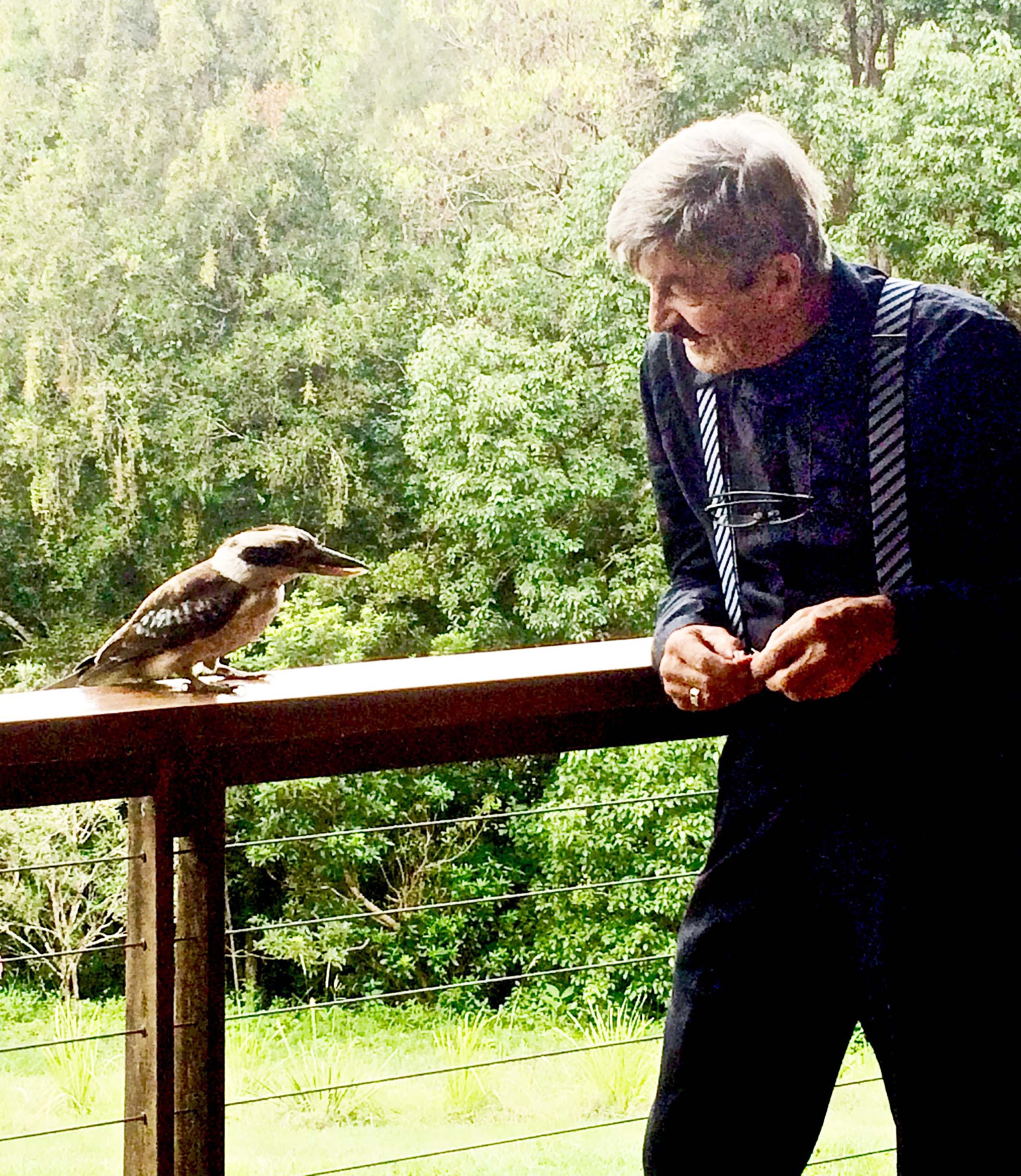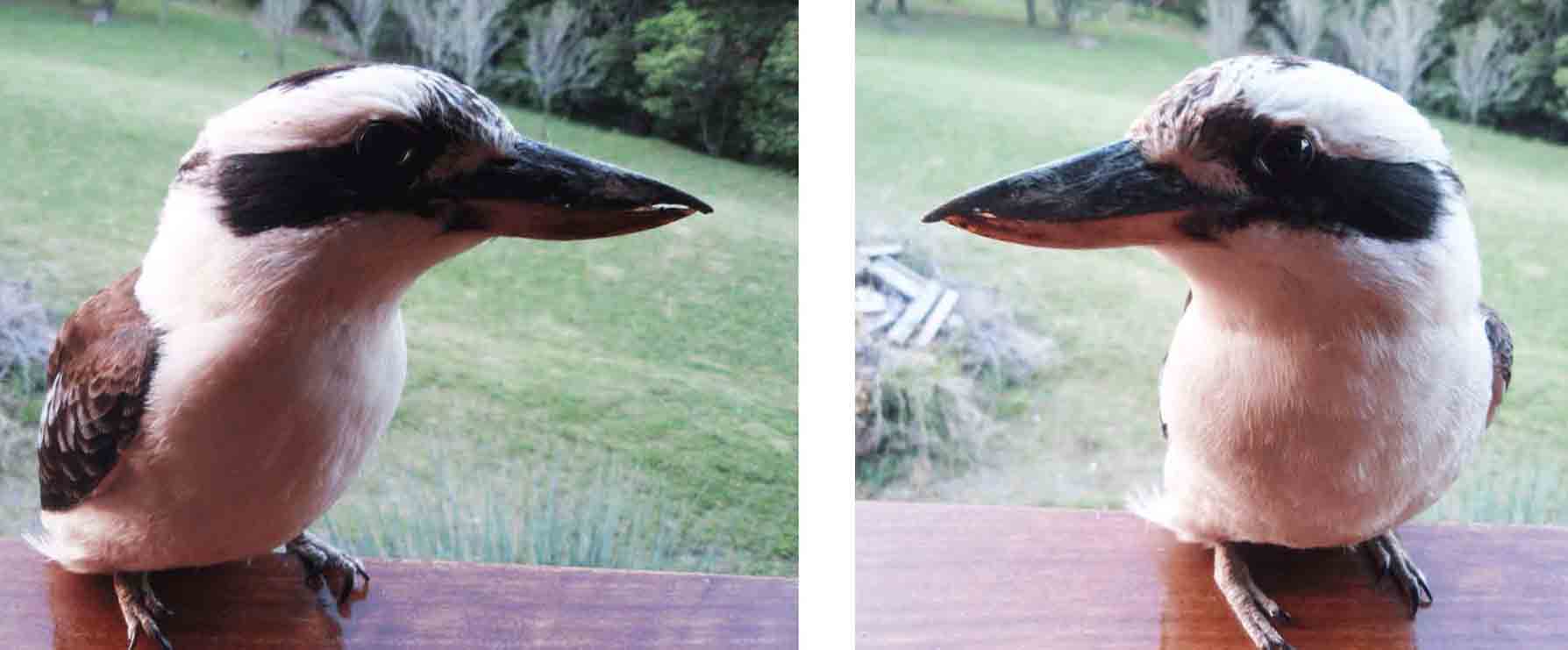A visit from a kookaburra
Not long after Karl’s death, a kookaburra appears on the railing of the back deck. Karl had many kookaburra mates who would eat directly from his hand, so such a visit is not surprising. In fact, three kookaburras show up together nine days after Karl died. (I feel they are looking for their friend.)
The kookaburra is known for its strong, bold energy. While one of its lessons is to ‘lighten up’, to look on the bright side and to laugh at our foibles, I have found that kookaburra energy can be highly confrontational, teaching harsh lessons, challenging our assumptions about how we should think and act. I must remember to be respectful.
Respect. That is the most powerful message of the kookaburra’s proud energy. So, what am I being asked to respect and pay attention to here, I wonder?

A messenger?
I immediately become aware that this juvenile kookaburra seems different: like a messenger. It acts precisely like power animals I’ve encountered in shamanic journeying: it hops around on the railing as if to let me see it from all angles.

I ask Karl, “Is that you – looking into me, healing me, and reassuring me? No kookaburra here ever did that before! This strange, enchanted kookaburra offers me all views of itself – even a pensive ‘looking-down’ view. I feel it’s you.”
(Karl does not reply, and I fail to decode the bird’s message, although it feels like forgiveness.)
I did not choose to go off the road
On 19 March 2016, I beg Karl’s forgiveness:
“I’m sorry if you felt you had to leave this life. I would have loved and cared for you; you know that!”
Karl’s first message
That message brings about Karl’s first message (seven weeks after this death). He also begs forgiveness.
Karl simply says, “I did not choose to go off the road. The road was slippery, and I just lost control.”
A couple of weeks later, he writes: “I’m so glad you are not angry at me. You know I’d never intentionally harm you.”
On his first birthday following the crash, I record this message to Karl: “I am sorry that I was dour when you were bright and crabby when you were warm and loving.”
I recall how he would be the one to make up after we argued.
A passage from Rilke
Once, in 2015, Karl sent me a card with a passage from Rilke (his favorite poet), which he prefaced, “from Karl with hope for atonement and reconciliation.”
He continued with Rilke’s words, “It is also good to love, because love is difficult. For one human being to love another human being: that is perhaps the most difficult task that has been entrusted to us, the ultimate task, the final test and proof, the work for which all other work is merely preparation.”
The stages or guideposts of forgiveness
As our conversations about forgiveness deepen following Karl’s death, I apologize for my mean streak. Karl accepts my apology and forgives me. What an unfamiliar and complicated situation we find ourselves in!
As time passes, I come to realize that forgiveness has several stages (or guideposts). Of course, as we grieve, all of us will address forgiveness issues in different ways (and according to our own timing).
Nevertheless, it’s wise to remember that if we are to forgive, we will probably need to do these things:
- Uncover our anger
- Decide to forgive
- Work on forgiveness (understanding the person who needs to be forgiven)
- Work toward compassion
- Accept the pain
- Offer a gift to the offender and
- Release ourselves from the emotional prison of an unforgiving approach (Enright, Forgiveness is a Choice, 2001: 7).
